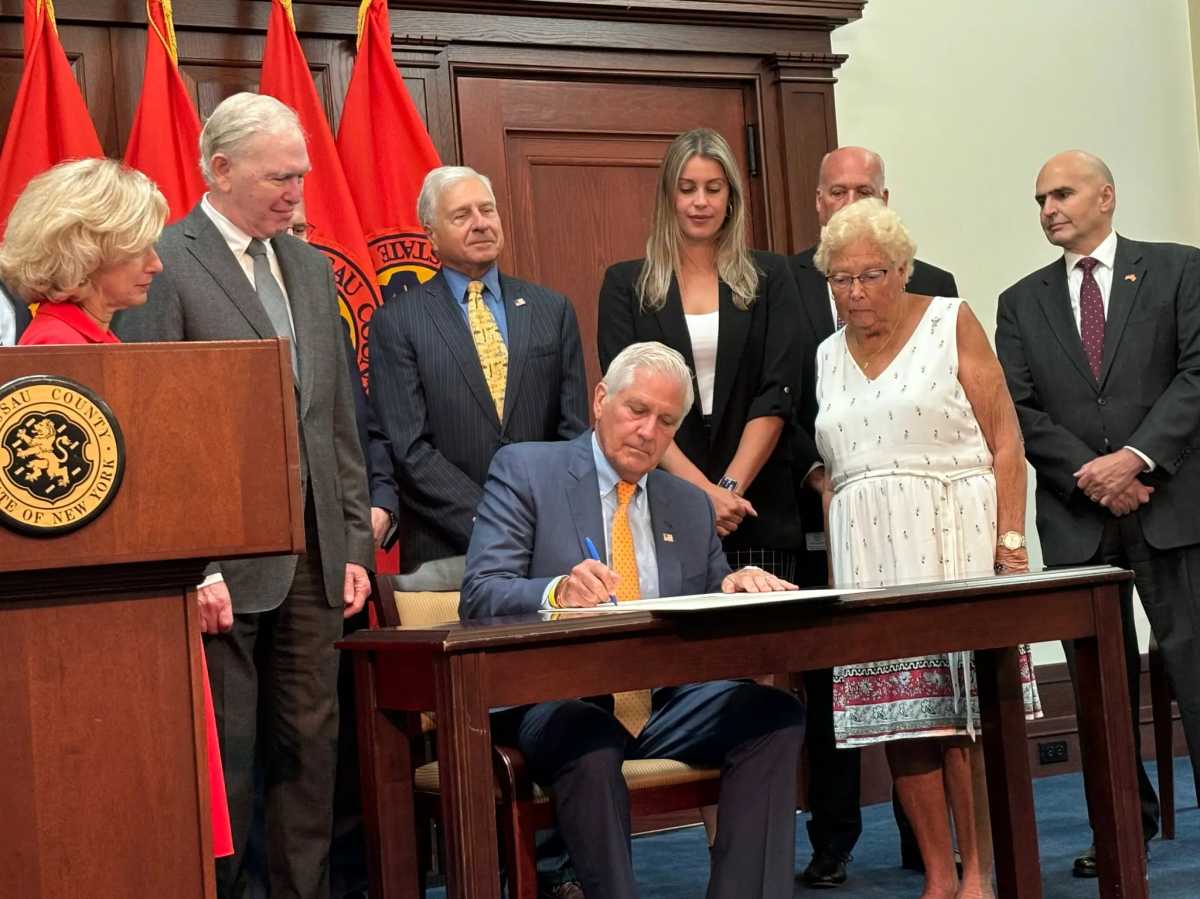Hindsight is, indeed, 20/20.
In 1967, Kathrine Switzer was physically assaulted for daring to compete in the Boston Marathon as a woman. The late Glenn Burke, a gay former MLB player who was out to his teammates in the 1970s, was allegedly branded as “a f—-t” by Oakland A’s manager Billy Martin — and the team owner offered to pay for an extravagant honeymoon if he just married a woman. The Olympic success of out lesbian South African track star Caster Semenya prompted outrageously dubious demands that she undergo “sex testing” — all because of racist, sexist, and false assumptions about her natural physical appearance.
None of these blemishes reflect positively on the history of any sport. On the contrary, they are downright embarrassing.
A similar story is on track to be repeated in Nassau County, where Republican County Executive Bruce Blakeman has spent much of the year shamefully trying to ban transgender athletes from participating in sports, following the lead of GOP lawmakers around the country who have passed such hateful laws in dozens of states.
Blakeman initially sought to use an executive order to carry out his discriminatory dream of banning transgender girls and women from female sports, but when that was struck down, he remained persistent and worked with county lawmakers to implement the hateful policy legislatively. Thankfully, Attorney General Letitia James has aggressively challenged Blakeman’s initiative at every step of the way with assistance from the New York Civil Liberties Union and the Long Island Roller Rebels, a roller derby league.
The persistence of Blakeman in his campaign to sideline transgender athletes is especially ridiculous given that it serves no purpose and solves no problem in Nassau County. Sports — especially for youth — should be about enjoyment, teamwork, and camaraderie.
It is flat-out discriminatory to ban anyone from a sport simply because of their identity, but it is also just bad, unenforceable policy when it is so binary that intersex or non-binary athletes do not even fit into the equation. Furthermore, the argument that people assigned male at birth are naturally going to steamroll opponents who are assigned female at birth fails to account for the realities of a society that is rich in gender diversity.
Case in point: Patricio Emanuel, a trans male boxer, has defeated cisgender male opponents on multiple occasions. In Connecticut, where two Black trans girls faced an avalanche of hate for running track against cisgender athletes in 2019 and 2020, the trans girls lost races to cisgender athletes — again dispelling the lie that trans athletes hold some special superpowers.
The justification behind the law is especially ironic: Blakeman insists the policy intends to protect “fairness for women and girls in sports” — an oft-repeated line among his fellow Republicans who have sought to demonize trans athletes in a desperate bid for votes.
Here’s a reality check: One real, concrete problem for women and girls in the sports world has nothing to do with fairness for transgender athletes. Rather, there is an ever-increasing gender gap in NCAA programs more than five decades after the rise of Title IX, the historic federal law barring sex-based discrimination in federally-funded educational programs.
A 2022 report celebrating the anniversary of Title IX found that although sports participation among women has climbed from 26% in 1982 to 47% in 2020, men’s programs pulled in more than twice as much funding in 2020. And the role of women in leadership roles on college sports teams have evaporated, according to that same report, which noted that 90% of women’s teams were led by women in 1972 compared to just 41% in 2020.
While men’s sports are quietly undermining women’s sports in violation of federal law, Blakeman is focused on creating a solution in search of a problem. In the history books, it is Blakeman who will be remembered as a problem.
Just as the inclusion of women in the Boston Marathon strengthened the sport — and the competition itself — the participation of trans athletes in Nassau County and elsewhere will only contribute to a healthier and brighter future for everyone.



































